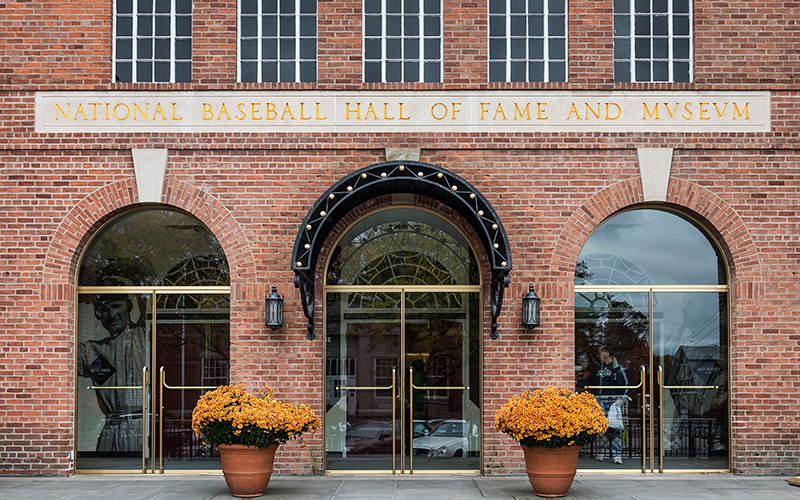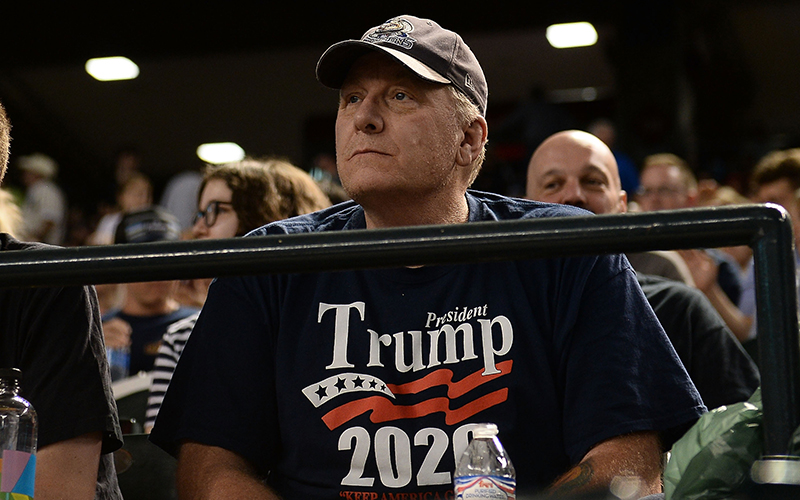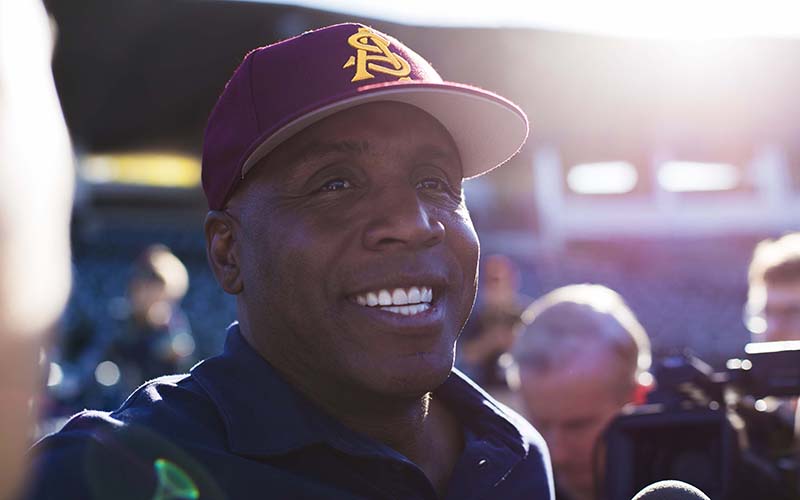PHOENIX – Even before this year’s spring training and regular season was delayed by an ongoing lockout, Major League Baseball was under intense scrutiny for its Hall of Fame enshrinement process.
Those expressing disgruntlement include former Arizona Diamondbacks pitching ace Curt Schilling, who asked to be removed from the National Baseball Hall of Fame ballot after failing to gain admittance in 2021.
His request was denied, setting the stage for more controversy when the 2022 votes were counted.
Schilling, whose controversial social media posts about the transgender and Muslim communities cost him his ESPN baseball broadcasting job, appeared on the ballot for the final time this year along with Roger Clemens and Barry Bonds, two suspected users of performance-enhancing drugs. None were elected despite sterling statistics.
Schilling was the 2001 World Series co-MVP for the world champion Diamondbacks. For his career, he was 11-2 in 19 postseason starts with a 2.23 ERA. Bonds is the single-season homerun leader. Clemens is a seven-time Cy Young winner who finished with 354 victories, with 4,672 strikeouts and a 3.12 ERA.
The trio’s continued exclusion from the Hall of Fame increased the spotlight on the voting process overseen by the Baseball Writers Association of America (BBWAA).
Reporters who have been covering the sport continuously for at least 10 years receive ballots the last week of November and have until Dec. 31 to cast their votes. Some reporters place more stress than others on the character of the nominees; some are swayed by any suspicions of performance-enhancing drug use. That there are alleged steroid users already in the Hall of Fame, including newly elected David Ortiz, complicates the conversation.
“We’ve had plenty of guys that have gotten into the Hall of Fame in the last 10 years who had a lot more steroid suspicions than Bonds and Clemens ever did,” USA TODAY Sports Major League Baseball columnist Bob Nightengale said. “In baseball, there was no policing whatsoever.”
Nightengale said he voted for Bonds and Clemens and Schilling every year they appeared on the ballot.
“My thing was that if you weren’t suspended, disciplined or fined by baseball, I’ll go ahead and check your name,” he said.
The Hall of Fame has included a character clause since the 1940s. More recently, it has been argued that excluding players like Schilling because of non-playing issues is proof that America’s pastime is too rigid about its Hall of Fame qualifications. Consider that Schilling, Clemens and Bonds – and going further back in time, Shoeless Joe Jackson and Pete Rose – have artifacts in the Hall of Fame that memorialize their laudable achievements even as they remain on the outside looking in.

The selection process for the National Baseball Hall of Fame has come under scrutiny over the last decade due to the controversial omission of high profile names, including Curt Schilling and Barry Bonds. (Photo by John Greim/LightRocket via Getty Images)
“They’re all over the museum,” acknowledged National Baseball Hall of Fame president Josh Rawitch, who added: “We do think that, in a lot of ways, baseball is held to a higher standard than a lot of things in American society. We believe that ultimately holding baseball to a higher standard isn’t a bad thing and we really do think character matters.”
To even get on the ballot players must have played at least 10 Major League seasons. A six-member selection committee reviews the list of people who fulfill that requirement. If two of the six members vote in favor of that player, they are placed on the ballot.
The Hall of Fame then gets the list and provides statistics and player biographies to include with the ballots that are mailed to the electorate. Once ballots are returned, they are sealed and put away in a room until the day of the announcement.
Announcement day is chaotic. Hundreds of ballots are counted multiple times. Once the winners have been determined, Secretary-Treasurer Jack O’Connell makes the official phone calls to welcome the new inductees.
“That feeling of doing that is exactly what you think it is,” O’Connell said. “It’s the reward for all the work in putting an election together.”
O’Connell recalled his conversation with the New York Yankees’ legendary closer Mariano Rivera, who was the first person he phoned in his official capacity with the BBWAA whose career he had covered.
Rivera was the first, and only, player to be elected unanimously.
“I got to tell him that he achieved something Babe Ruth, Stan Musial and others didn’t do,” O’Connell said, adding, “For someone who I covered, [who] I knew for a long time, it was a very satisfying moment for me.”
For the writers, who does and doesn’t get those calls from O’Connell can be a point of contention.
“Bonds and Clemens are frustrating for me because in a sense that you know we put in guys, such as Mike Piazza, Pudge [Ivan] Rodriguez, Jeff Bagwell who had a lot of steroids suspicions with them and huge body changes as well,” Nightengale said. “I think in some ways, Bonds and Clemens were penalized for being so great. I think if Bonds had not broken Hank Aaron’s home run record and Roger Clemens hadn’t been winning Cy-Young awards in his 40’s they’d be in the Hall of Fame but they were just too great.”
Nightengale drew the line at players like Alex Rodriguez and Manny Ramirez who were caught using performance-enhancing drugs. Rodriguez received the longest drug-related suspension in baseball history, sitting out the entire 2014 season.
“Bonds and Clemens never missed any games because of a suspension,” Nightengale said. “Once those rules were in place, everybody knew what the consequences were.”
The situation is further clouded by the fact that Bud Selig, the former commissioner who oversaw the game during the steroids era, is in the Hall of Fame. Selig was enshrined in 2017.
The differences in opinion among the voters don’t bother O’Connell, who said, “I defend the individual voter’s right to choose and I think that’s what makes the process work. “We take this process very seriously and I think the process works.”
Technological advances have created a new breed of players whose appearances on the ballot in the coming years will invite controversy. The Houston Astros were caught stealing signs electronically during the 2017 and 2018 seasons. That many of their batting stats were much higher at home than they were on the road raised questions about how much they benefited from the illegal act.
Carlos Beltran is the first person from that team to be eligible for the Hall of Fame. He will be on the ballot next year. Beltran was hired as manager of the New York Mets in November 2019 only to be fired two months after the sign-stealing allegations surfaced.
Although players were not punished for that scandal, they could be penalized for their actions, as were Bonds and Clemens, by the Hall of Fame voters.
“It’ll be interesting,” Nightengale said. “Beltran, you could argue, had the numbers to be a Hall of Famer before he got to Houston, but now I’m not sure he will. We’ll see about Jose Altuve, who will be a fascinating case since he’ll likely have the numbers if he stays healthy and said he didn’t want the signs and teammates stuck up for him.”
Schilling can still make the Hall of Fame if voted in by the Veterans’ Committee – composed of former players – and he’s fine with that.
On his Facebook page, Schilling wrote, “I’ll defer to the veterans committee and men whose opinions actually matter and who are in a position to actually judge a player.”
The first criteria to even get on the ballot is that players must have played at least 10 Major League seasons. A six-member selection committee reviews the list. If two of the six members vote in favor of that player, they are placed on the ballot.
The Hall of Fame then gets the list and provides statistics and player biographies that go with the ballot mailed to the electorate. Once ballots are mailed back, they are sealed and put away in a room until the day of the announcement.
On announcement day, there’s chaos. Hundreds of ballots are counted multiple times. Once the winners have been figured out, Secretary-Treasurer Jack O’Connell makes the official phone call to welcome the new inductees.
“That feeling of doing that is exactly what you think it is,” O’Connell said. “It’s the reward for all the work in putting an election together.”
O’Connell recalled his conversation with New York Yankees legend Mariano Rivera who was the first person he got to call in his position with the BBWAA that he covered in Rivera’s playing career. Rivera became the first and only player to this point to be elected unanimously.
“I called them and they all started shouting and cheering and I had one more piece of information to tell him,” O’Connell said. “I got to tell him that he achieved something Babe Ruth, Stan Musial and others didn’t do.
“All 50 calls are but obviously for someone who I covered, I knew for a long time, it was a very satisfying moment for me.”
For the writers, who does and doesn’t get those calls from O’Connell can be frustrating.
“Bonds and Clemens are frustrating for me because in a sense that, you know, we put in guys, such as Mike Piazza, Pudge [Ivan] Rodriguez, Jeff Bagwell who had a lot of steroids suspicions with them and huge body changes as well,” Nightingale said. “I think in some ways, Bonds and Clemens were penalized for being so great. I think if Bonds had not broken Hank Aaron’s home run record and Roger Clemens hadn’t been winning Cy-Young awards in his 40’s they’d be in the Hall of Fame but they were just too great.”
However, O’Connell strictly defends the process.
“I defend the individual voter’s right to choose and I think that’s what makes the process work,” O’Connell said. “We take this process very seriously and I think the process works.”
Now, a different breed of players will be on the ballot in the coming years and controversy has arisen in the past half-decade due to the new found age of technology in the sport. The Houston Astros were caught stealing signs electronically during at least the 2017 and 2018 seasons. In this effort, many players’ stats were much higher at home than they were on the road which raised questions about how much impact this illegal action had.
Carlos Beltran is the first person from that team to be eligible for the Hall of Fame and will be on the ballot next year. Beltran was hired as manager of the New York Mets in November 2019 but was fired two months later following the surfacing of the allegations.
Although players were not punished for that scandal, a possible punishment could be similar to Bonds and Clemens where they are left out of the Hall of Fame for their actions during this time.
“It’ll be interesting, Beltran you could argue had the numbers to be a Hall of Famer before he got to Houston, but now I’m not sure he will,” Nightengale said. “We’ll see about Jose Altuve who will be a fascinating case since he’ll likely have the numbers if he stays healthy and said he didn’t want the signs and teammates stuck up for him.”
No matter how or why it’s done, the Hall of Fame is still a majestic place to visit.
“It’s pretty special, everybody I’ve talked to has it on their bucket list and I’m saying ‘What are you doing, get out here!’” Rawitch said. “Once you get here, it lives up to all expectations.”


